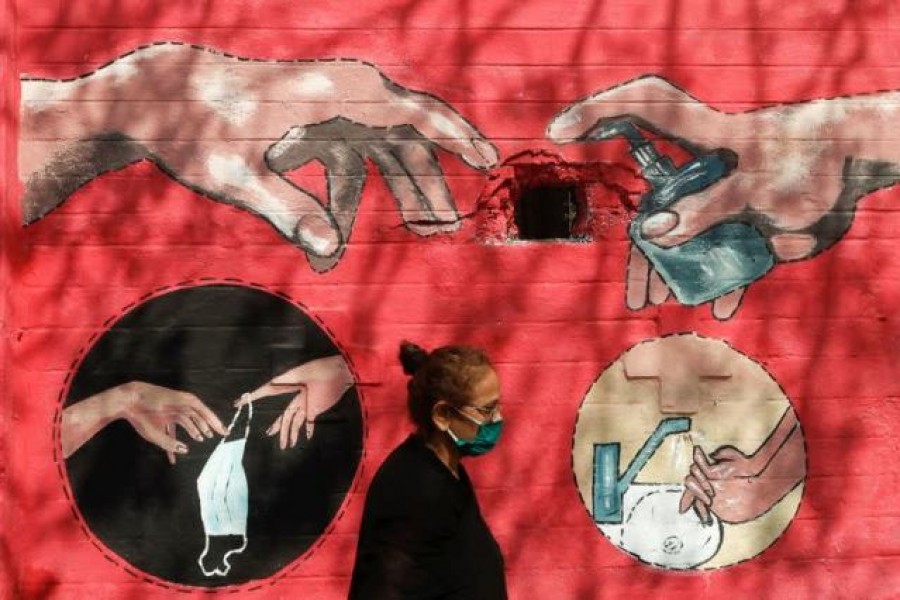India’s second wave of coronavirus infections continued to swell as it reported a record 115,736 new cases on Wednesday, a 13-fold increase in just over two months and raising pressure on the government to expand its vaccination campaign.
The federal government has asked states to decide on local curbs to control the spread of the virus, but has so far refused to impose any national lockdown after the last one in 2020 devastated its economy and left millions of people penniless.
The total number of cases since the first recorded infection in India just over a year ago now stands at 12.8 million, making it the third worst hit country after the United States and Brazil.
Deaths rose by 630 - the most in four days - to 166,177, according to data from the health ministry.
Ominously, the daily increase has topped 100,000 twice this week. The only other country to post such numbers has been the United States.
Daily infections in India have also passed the peak of the epidemic’s first wave, seen in September. The country had reported a multi-month low of 8,635 cases in early February.
And as the second wave gathered momentum, authorities in many states including hardest hit Maharashtra have ordered new local restrictions to contain the virus, some of whose variants have become more infectious.
“The pandemic isn’t over and there is no scope for complacency,” Health Minister Harsh Vardhan said on Twitter, urging people to get “vaccinated on your turn and follow COVID-appropriate behaviour scrupulously!”
But many states have criticised the federal government as India, the world’s biggest vaccine maker, has restricted its immunisation drive to front-line workers and people aged over 45 years.
Vaccine Shortages
States like Odisha have also flagged shortages of supplies even for the prioritised groups. Odisha’s chief health official, P.K. Mohapatra, wrote to the federal health ministry on Tuesday warning that the state only had enough vaccines for three days.
Vaccine supplies in Mumbai, India’s financial capital and one of its worst-hit cities, will be over in three days also and the next installment is scheduled to arrive only on April 15, Mayor Kishori Pednekar told reporters.
The health ministry has repeatedly told states that it replenishes stocks based on immunisation patterns, and that supplies are adequate in the country. It has not yet replied to Mohapatra’s latest letter complaining of shortages.
India has so far administered 85 million doses, more than 90 per cent of those the AstraZeneca shot made by the Serum Institute of India. The rest has come from Indian company Bharat Biotech that has developed a vaccine with a government research body.
Both vaccines require two doses. More than 74 million people in India have received at least one dose.
Only the United States and China have vaccinated more people, having started their campaigns earlier. But with the contagion accelerating, India is in a far harder race to increase immunity among its population of 1.35 billion people.
Compelled by its domestic needs, India has now delayed exports of large quantities of vaccines, though 64.5 million does have been shipped so far.
“We are supposed to be the pharmacy of the world, what kind of pharmacy is this that cannot provide vaccines to even a small portion of its people,” said a government official who declined to be named.
“How long can you justify this situation to your people.”


